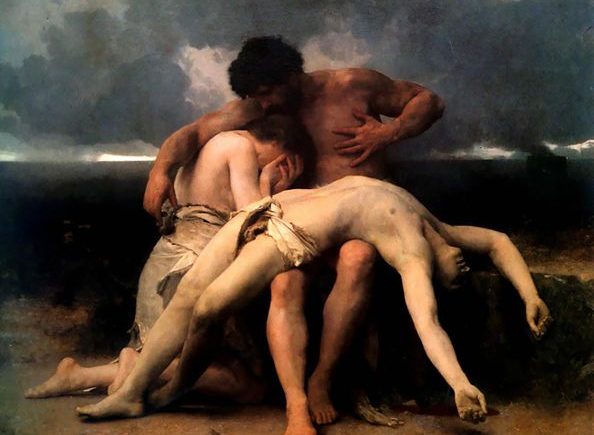y Lois Tverberg
Then the LORD said to Cain, “Where is Abel your brother?” And he said, “I do not know. Am I my brother’s keeper?” He said, “What have you done? The voice of your brother’s blood is crying to Me from the ground. – Genesis 4:9-10
We often miss the major point of biblical texts if we don’t take into account the wording and poetry of the story. Often, a word is repeated over and over in the story to make a point in a subtle way. The first time we read the word “brother” in the bible (ach, in Hebrew) is when Eve gave birth to Abel after first having Cain. It says, “Again, she gave birth to his brother Abel,” (Genesis 4:2) showing that the first person in all of the Bible to be a brother to someone else is Abel, and the first person to have a brother is Cain.
Interestingly, in the next several verses, the word brother is repeated seven times, and the middle time is in God’s question, “Where is Abel your brother?” The writers were very sensitive to word repetition and pattern, and to repeat a word seven times emphasizes its centrality to the story.  The unspoken message is that God’s question, “Where is Abel your brother?” is central and very important – Abel is the first brother, and the only brother to Cain, and he is responsible for him. Cain’s response, the first words after Abel’s murder, shows that he has rejected his responsibility to his one and only brother.
The unspoken message is that God’s question, “Where is Abel your brother?” is central and very important – Abel is the first brother, and the only brother to Cain, and he is responsible for him. Cain’s response, the first words after Abel’s murder, shows that he has rejected his responsibility to his one and only brother.
The Bible often uses the first of a kind to represent all of that kind, as Adam is the first and representative man. So the take-home message of this story is that all who are human are our brothers, and we are our brother’s keepers. The minute we forget that, sin starts to crouch at our door and we start moving down a path toward evil that may even lead toward murder.
We might think that this is self-evident and not something to be reminded of. But modern culture today emphasizes our individuality to the point of amazing self-centeredness. Materialism and consumerism prey on answering every need of ours, and pornography feeds the desire to use others’ bodies for our own pleasure. Every possible convenience is available to us, showing us that the world will obey our every whim. As a result we become self-centered and short-tempered in our relationships with others, expecting everything to go our way at all times. Only when we are reminded that other humans are our brothers, and that we must love our brothers as ourselves, will we begin to live as God wants us to.
Photocred: Art Renewal Center


